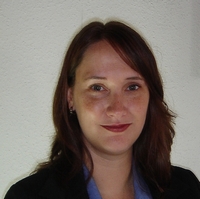Beginner needs advice: do I need further studies to get started? Thread poster: Alivette
|
|---|
Alivette
United States
Local time: 11:47
Spanish to English
Hi everyone. I am looking into getting work as a translator but I'm not sure which way to go. I already have a Bachelor's degree in Psychology and I've studied Spanish formally for years. I was thinking of getting a MA in Linguistics while studying Portuguese. There are also certificate programs offered in translation for both Spanish and Portuguese into English. I would like to know what the seasoned professionals think. Will a MA in Linguistics give me what I need to get started? Or is there ... See more Hi everyone. I am looking into getting work as a translator but I'm not sure which way to go. I already have a Bachelor's degree in Psychology and I've studied Spanish formally for years. I was thinking of getting a MA in Linguistics while studying Portuguese. There are also certificate programs offered in translation for both Spanish and Portuguese into English. I would like to know what the seasoned professionals think. Will a MA in Linguistics give me what I need to get started? Or is there something else I should be doing to prepare myself?
[Subject edited by staff or moderator 2008-09-06 19:25] ▲ Collapse
| | | |
Fabio Descalzi 
Uruguay
Local time: 12:47
Member (2004)
German to Spanish
+ ...
Hi Alivette
Thanks for using ProZ.com and for posting at this forum.
I will give you some advice:
1) Please make your profile complete, http://www.proz.com/?sp=quick_profile I am sure there are lots of things about yourself that you can already show on your profile.
2) Of course that further studies can help you enhance your possibilities. But, whether you study or not... See more Hi Alivette
Thanks for using ProZ.com and for posting at this forum.
I will give you some advice:
1) Please make your profile complete, http://www.proz.com/?sp=quick_profile I am sure there are lots of things about yourself that you can already show on your profile.
2) Of course that further studies can help you enhance your possibilities. But, whether you study or not, the main point is ATTITUDE. If you look around for things to do, sooner or later you will find translation work.
3) Last but not least: apart from attitude, you need NETWORKING. There are several possibilities of such interaction out here: KudoZ questions, forums, powwows, etc.
Wish you good luck in your search!
Best,
Fabio ▲ Collapse
| | | |
Henry Hinds 
United States
Local time: 09:47
English to Spanish
+ ...
In memoriam | How well do you know Spanish? | Sep 6, 2008 |
You say you have studied Spanish formally for years. Number one, I don't know you so I have no idea. But are you thoroughly comfortable with Spanish in all areas, in all situations? Have you lived the culture and the language? If so, which culture(s)?
An MA in Linguistics may be nothing more than a lot of useless theory that is no good in practice. And why study Portuguese when Spanish goes on forever?
I think there is plenty more room for native English-speakers workin... See more You say you have studied Spanish formally for years. Number one, I don't know you so I have no idea. But are you thoroughly comfortable with Spanish in all areas, in all situations? Have you lived the culture and the language? If so, which culture(s)?
An MA in Linguistics may be nothing more than a lot of useless theory that is no good in practice. And why study Portuguese when Spanish goes on forever?
I think there is plenty more room for native English-speakers working with Spanish, but your Spanish must be really good. I would say for you to look at that first and then decide what it is you really need. ▲ Collapse
| | | |
| ATA certification | Sep 6, 2008 |
Alivette wrote:
I am looking into getting work as a translator but I'm not sure which way to go. I already have a Bachelor's degree in Psychology and I've studied Spanish formally for years. I was thinking of getting a MA in Linguistics while studying Portuguese. There are also certificate programs offered in translation for both Spanish and Portuguese into English. I would like to know what the seasoned professionals think. Will a MA in Linguistics give me what I need to get started? Or is there something else I should be doing to prepare myself?
Hi Alivette - how about taking the ATA certification exam? It may not be as difficult as other exams for translators, but it's not easy and will give you some confidence in your abilities. Just preparing for it will be an incentive to find out as much as you can about best practices.
When I first took the German to English exam, I had lived and worked in Germany for twenty years and was fully bilingual and had taught both English and German for many years, but I flunked it the first time around. I had to wait an entire year to take it again. While waiting to retake it, I read everything I could find on translating, including the ATA Chronical, joined a Mexican translators' association, attended an ATA annual conference where I met, talked to and learned from pro translators.
Eight years ago KudoZ was a fantastic place to share ideas and learn from fellow translators.
http://www.atanet.org/certification/
You might also be interested in this article: Respect for the craft of translation http://www.proz.com/translation-articles/articles/1264/
| | |
|
|
|
Latin_Hellas (X)
United States
Local time: 17:47
Italian to English
+ ...
| Business Experience | Sep 7, 2008 |
Fabio Descalzi wrote:
2) Of course that further studies can help you enhance your possibilities. But, whether you study or not, the main point is ATTITUDE. If you look around for things to do, sooner or later you will find translation work.
3) Last but not least: apart from attitude, you need NETWORKING.
Degrees and certificates are good and proper, but experience is the best credential of all.
Consider specializing in a certain field (not sure if psychology would generate enough translation work) and land a job in that field for a few years, thereby learning something specific to a business, honing your skills in Spanish in that environment, and NETWORKING.
Then, once you become established, you could consider adding a second or third language, focusing on your field of specialization.
Good luck!
| | | |
Henry Hinds 
United States
Local time: 09:47
English to Spanish
+ ...
In memoriam | No, just the opposite | Sep 7, 2008 |
[quote]Latin_Hellas wrote:
Then, once you become established, you could consider adding a second or third language, focusing on your field of specialization.
No, it should be just the opposite. Once you become established then consider adding other specializations in the same language. After all, it is much easier ro acquire more specialized vocabulary and understanding in the same language than to undertake the learning of a new language in which you are likely to acquire no more than a mediocre passive knowledge.
My point is, as far as languages are concerned, go for depth. In any language you will be competing with very accomplished native speakers, so the only way to compete is to be one yourself.
| | | |
Alivette
United States
Local time: 11:47
Spanish to English
TOPIC STARTER | thanks to everyone | Sep 7, 2008 |
I have not thought about taking the ATA exam, but will definitely look into it. I wanted to do Portuguese because I am interested in Brazil and Brazilian culture, and I am under the impression that there are tons on Spanish>English translators. I admit my language skills are rusty because I have not been using it. I did spend a couple of months in Venezuela while an undergrad, but that was many years ago. I also had jobs where I had to speak Spanish to my monolingual clients, but I don't know ho... See more I have not thought about taking the ATA exam, but will definitely look into it. I wanted to do Portuguese because I am interested in Brazil and Brazilian culture, and I am under the impression that there are tons on Spanish>English translators. I admit my language skills are rusty because I have not been using it. I did spend a couple of months in Venezuela while an undergrad, but that was many years ago. I also had jobs where I had to speak Spanish to my monolingual clients, but I don't know how that would apply to translation work. ▲ Collapse
| | | |
| Living Spanish culture | Sep 7, 2008 |
Henry Hinds wrote:
You say you have studied Spanish formally for years. Number one, I don't know you so I have no idea. But are you thoroughly comfortable with Spanish in all areas, in all situations? Have you lived the culture and the language? If so, which culture(s)?
An MA in Linguistics may be nothing more than a lot of useless theory that is no good in practice. And why study Portuguese when Spanish goes on forever?
I think there is plenty more room for native English-speakers working with Spanish, but your Spanish must be really good. I would say for you to look at that first and then decide what it is you really need.
I second this.
Unfortunately, the quality of Spanish instruction in American Universities leaves much to be desired. I meet people all the time who tell me "I took three, four, five or more semesters of Spanish" - but they cannot speak, read or write it!
I you can arrange spending half a year to a year in a Spanish-speaking country, that would be awesome. If not, the second best would be living in a part of the US where Spanish is spoken. Los Angeles is one such example - Spanish is a strong second language here, and in a particular area where I live it's practically the first language.
That's how I improved my Spanish - I made it a point to use it whenever I had an opportunity. And I didn't passively waited for the opportunities - I created them. Over the years, I made strong friendship with people with whom I communicated predominantly in Spanish, both in person and over the internet.
But bear in mind, however, that Spanish you here in the US is not always grammatically correct. So, in order to know correct Spanish, read a lot of Spanish literature, both modern and classical - not only to improve you language skills, but because it is enjoyable in and of itself.
If you stick to it and not take you language skills for granted, but work hard on improving them, you'll become a very good translator with time.
Best luck to you!
| | |
|
|
|
Angela Dickson (X) 
United Kingdom
Local time: 16:47
French to English
+ ...
| MA Linguistics | Sep 8, 2008 |
I wouldn't say an MA in Linguistics would be useless, but it's only worth doing really for its own sake, if you have a significant interest in linguistics and wish to pursue this, rather than as a way into translation. I did an Linguistics MA and I don't regret it, but I can't pretend it has been useful in establishing a translation career!
| | | |
| Similar situation | Sep 16, 2008 |
Hi Alivette,
I was in a similar situation when I started working as a translator. I wanted to cut down my hours as a physiotherapist and start up with translating for a few hours a week. Like you, I do not have any translating qualifications and was not sure if I would get any jobs because of this problem. I posed a similar question in the forum here and the answers were mixed as to whether I need to do further studies. I decided to risk it without going back to uni. In the end I´v... See more Hi Alivette,
I was in a similar situation when I started working as a translator. I wanted to cut down my hours as a physiotherapist and start up with translating for a few hours a week. Like you, I do not have any translating qualifications and was not sure if I would get any jobs because of this problem. I posed a similar question in the forum here and the answers were mixed as to whether I need to do further studies. I decided to risk it without going back to uni. In the end I´ve had so much work due to my experience and studies as a physiotherapist that I´ve had to refuse a few translating jobs this year and could work full-time as a translator if I wanted to. I´d still like to do some type of formal further education in the translating field, but I simply haven´t had the time so far. I haven´t seen very many physios who do translations in my language combination (i.e., none so far), so I tend to get the jobs in my field. There isn´t enough work in the physio translating field to survive on it alone, but I´ve branched out from doing pure physio translations. For example, I´ve had a couple of jobs to do with psychology, statistics, orthopaedics, health care etc. These were all subjects that I had at uni or during courses as a physio, so I feel confident with the general terminology and phrasing. Occasionally I come across a term that I am not familiar with, but if you have good general knowledge in the field, then you can work out the definition and translation by doing a bit of research. I reckon that it would be a similar situation for you as a psychologist.
So, yes, I do believe that you can get translating jobs if you do not have a formal translating qualification. It does help enormously if you have lived or are living in a country where the source language is spoken, especially if you work there. If that isn´t possible and you would especially like to translate in the psychology field, order a few Spanish psychology journals and see how you are with the terminology. Try translating the texts to see if it´s something for you. The job can be tedious at times, especially if the source text is as boring as hell and badly written. The other drawback is that it can be rather isolating sitting for hours on end with only your computer to keep you company. On the other hand, when you´ve got a well-written, interesting text to translate you broaden your horizons and knowledge while getting paid for it!
Good luck with it all! ▲ Collapse
| | | |












